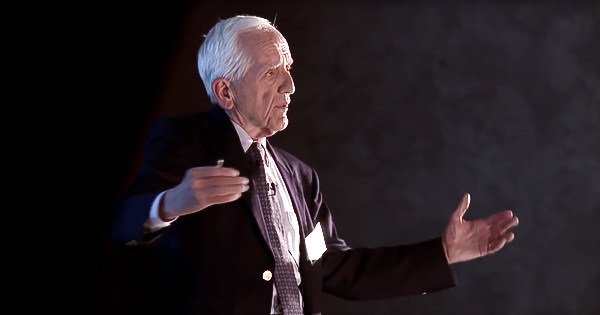
Cornell Scientist Shows the Link Between Diet and Disease Has Been Ignored.
“The war on cancer has failed,” says T. Colin Campbell, PhD, Cornell University Professor Emeritus in Nutritional Biochemistry, because it is likely that the underlying science for this disease is misunderstood, a misunderstanding that began more than two centuries ago. Campbell recently detailed some of that history and its consequences in six peer-reviewed articles, most of which are now published on PubMed with open access to the public. A complete list of these articles can be found on the Center for Nutrition Studies website: http://nutritionstudies.org/6-papers-redefining-sciences-nutrition-cancer-healthcare/
Campbell is well known for his own research in this area and has published over 300 research papers, most of them peer-reviewed. His research, including the China Project, a collaboration between Cornell University, Oxford University and The Chinese Academy of Medicine was summarized in The China Study (2005), his New York Times best-selling book, co-authored with his son Thomas Campbell, MD. The China Study helped to propel plant-based eating into the mainstream
As Campbell details in the journal Nutrition and Cancer, “William Lambe, Fellow of the Royal College of Physicians in London, in 1809…warned ‘against the danger of excess in food consumption, particularly meat and other protein products.'” Campbell points to other landmark studies as well, such as Cancer and Diet, a 729-page monograph published in 1937 by the American Cancer Society’s founder, Frederick Hoffman. Hoffman concluded that the leading causes of disease in modern societies were “too heavy intake of protein and a corresponding excess in sugar.” In 1982, Campbell co-authored a first of its kind report on Diet, Nutrition and Cancer by the National Academy of Sciences, which recommended a greater intake of whole fruits and vegetables while restricting meat and other animal products.
“The link between nutrition and cancer is not new, just ignored for a very long time,” says Campbell. “It is well past time that we go back to the basics in understanding this disease, both its causation and its treatment,” says Campbell.

